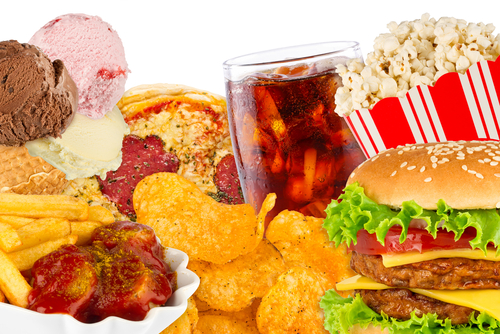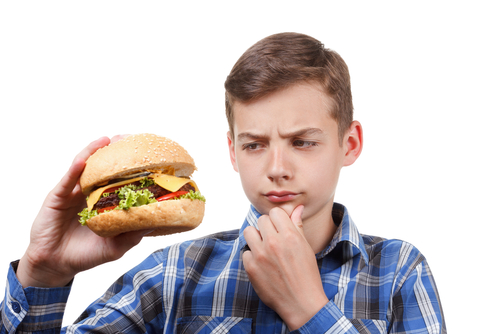Knowing what is healthy is the first step to becoming healthy. However, knowledge by itself is rarely enough. Scientists who study human behavior (and more specifically how people change a behavior) have identified some key stages--steps that nearly everyone follows in making a change.
Imagine that a teenager named Stan has read that, to achieve optimal health, a person should eat some fresh fruits and vegetables every day. What are the steps or stages that might get Stan from gaining that knowledge to enacting long-term changes in his own behavior? The brief paragraphs on the slides below describe how it would look for Stan to change his behavior in the typical way.
Pre-contemplation
Pre-contemplation means "before thinking." In this stage, Stan believes that his current diet is adequate. He doesn't have any health problems; therefore, he has no need to change what he eats. Stan is in the stage that exists before thinking that he needs to make a change. Contemplation
During this stage, Stan begins to think that his diet could be improved. Perhaps he decides that even though he's healthy now, his high-salt, high-sugar, high-fat diet may lead to health problems in the future. As a result, he is contemplating, or thinking about, change. Preparation
Stan makes a point to eat more fresh fruits and vegetables than he has in the past, just to see which ones he finds most tasty. He's not eating fruits and veggies every day yet, but he plans to add them to his daily diet within a month, and he's already gathering recipes for his favorite dishes. Stan also takes note of the things that seem to cause him to eat other kinds of foods instead of fresh fruits and vegetables, such as chips and cookies. Action
Stan begins eating fresh fruits and vegetables every day. He is careful to avoid the triggers he identified, and he is able to maintain his new healthy behavior for a full six months! Maintenance
In this stage, Stan develops strategies to avoid relapsing, or going back to his old eating habits. He packs his lunch on days when the cafeteria isn't serving any of the vegetables that he likes. And he might offer to go grocery shopping for his parents if he notices there's no more fresh fruit in the kitchen. |
Question
Mr. Ramirez, a former smoker, plays tennis with a group of other ex-smokers. What stage of behavior change is Mr. Ramirez in?





